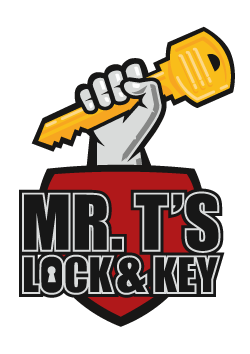
If your garage door is jammed, it can be both inconvenient and a potential security risk. This problem is fairly common among homeowners and can happen for a variety of reasons. Below, we’ll go over common causes of a jammed garage door, what you can do about it, and why professional assistance can save you time and prevent further issues.
Common Causes of a Jammed Garage Door
1. Obstructed Tracks
The tracks on which your garage door slides up and down need to be clear of any obstructions to function correctly. Dirt, debris, and even small objects can sometimes get lodged in the tracks, preventing smooth movement. If you notice any buildup or objects blocking the tracks, gently clean them to see if that solves the problem. However, avoid using too much force as it can damage the tracks and worsen the issue.
2. Broken Springs
The springs in your garage door system bear a significant amount of tension and weight, helping to lift and lower the door. Over time, these springs can wear out, snap, or become loose, making it difficult for the door to operate smoothly. If you hear a loud snapping sound and find the door no longer moves, it’s possible that a spring has broken. Broken springs are dangerous to handle on your own, as they are under extreme tension, so it’s best to call in a professional for repairs.
3. Misaligned Tracks
If the tracks become misaligned, the door may jam or make unusual noises when trying to open or close. Track misalignment can occur due to gradual wear or a sudden impact, such as accidentally bumping into the garage door with your car. Slightly misaligned tracks may be adjusted by loosening the screws and realigning them, but for significant misalignment, a professional should be consulted to avoid further damage.
4. Sensor Issues
Modern garage doors come with safety sensors that detect any objects in the path of the door. If the sensors become dirty, misaligned, or malfunction, the door may refuse to close. Check if the sensors are aligned and clean; however, if they seem to be working but the problem persists, it might be a sign of electrical or mechanical issues within the system.
5. Damaged Cables
Cables work alongside the springs to lift the door. If a cable snaps or becomes frayed, it can prevent the door from opening or closing properly. Damaged cables are also hazardous as they can cause the door to fall suddenly. For safety, leave cable repairs to a qualified professional who has the tools and expertise to fix or replace them safely.
6. Weather Conditions
In colder climates, ice can accumulate on the door tracks or around the seals, causing the door to stick. Additionally, metal components in your garage door system may contract in extreme cold, leading to mechanical issues. Avoid forcing the door in these conditions, as it may worsen the damage.
Temporary Solutions You Can Try
While professional assistance is often the best route, there are some safe troubleshooting methods you can try before calling a specialist. Here are a few options:
1. Inspect and Clean the Tracks
Take a close look at the tracks on either side of your door. If you see any dirt or obstructions, use a damp cloth to wipe it down and then dry the tracks thoroughly. Avoid using harsh cleaners that could corrode the metal.
2. Lubricate Moving Parts
Applying a garage door lubricant can help if your door is sticking due to friction. Lubricate the springs, rollers, and tracks lightly, but avoid applying too much, as excess lubricant can attract dirt and cause build-up.
3. Check the Sensors
Ensure the safety sensors are aligned and free of dirt. Sometimes, gently adjusting or wiping the sensors is enough to reset the system and get the door moving again.
4. Reset the System
Some garage door issues can be resolved by simply unplugging the door opener system and plugging it back in after a few seconds. This may reset the system and allow for normal operation.
Why Professional Help is the Best Solution
Garage doors are complex systems with high-tension components that can be dangerous to repair on your own. Attempting DIY repairs, especially on critical components like springs and cables, can result in personal injury and further damage to the system. Here’s why hiring a professional is often the safest and most effective solution:
- Expertise and Experience: Professionals have the training to identify and resolve issues efficiently, ensuring the door functions smoothly and safely.
- Specialized Tools: Some garage door components require specific tools for proper repair and adjustment. Professionals have the right tools to do the job without causing further damage.
- Warranty and Safety: Hiring a professional means that any replacements or repairs are likely covered by a warranty, providing peace of mind. Moreover, professionals adhere to safety protocols that protect both you and your property.
When to Call Mr. T’s Lock & Key
If you’re experiencing persistent issues with your garage door or notice any signs of broken components, it’s time to bring in the experts. Mr. T’s Lock & Key, serving Rhode Island, offers reliable garage door repair and maintenance services, helping you address issues before they turn into costly replacements. With our expert team and commitment to safety, you can count on us to get your garage door working smoothly once again.
